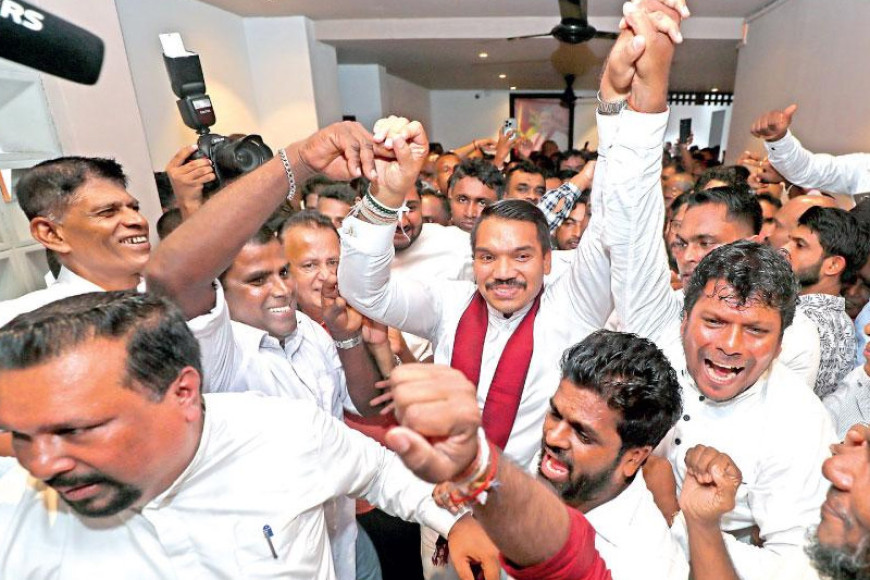By Rohana Jith
Sri Lanka’s 2024 Presidential Election has drawn 39 candidates vying to become the nation's ninth Executive President. The election has four prominent contenders, making this a high-stakes contest.
Leading the pack is the current President, Ranil Wickremesinghe, an independent candidate symbolized by a gas cylinder, reflecting the critical period in 2022 when he assumed office amidst a severe gas shortage.
His key competitors include Sajith Premadasa from the Samagi Jana Balavegaya (SJB), Anura Kumara Dissanayake of the National People’s Power (NPP), and Namal Rajapaksa of the Sri Lanka Podujana Peramuna (SLPP).
Wickremesinghe enjoys the backing of 34 political parties and groups that signed a Memorandum of Understanding (MoU) to support him in the September 21 election.
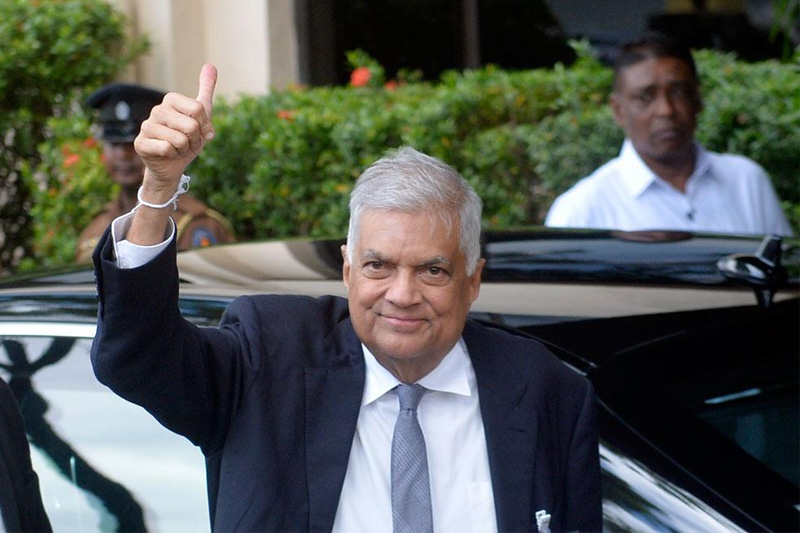
However, the late entry of Namal Rajapaksa has added a complex dimension to the race. Initially, the SLPP was poised to support Wickremesinghe, and he even reached out to the SLPP leader, Mahinda Rajapaksa, for endorsement.
But, on July 29, the SLPP politburo decided to field its own candidate, with Namal Rajapaksa stepping in after businessman Dhammika Perera withdrew his bid.
The SLPP, with a significant vote base, particularly in regions outside the north, could have heavily favored Wickremesinghe had it endorsed him.
At the 2019 Presidential Election, Gotabaya Rajapaksa garnered 6.9 million votes; even if a third of that base shifts to Namal Rajapaksa, it would present a substantial challenge to Wickremesinghe.
While the SLPP’s campaign aims to position Namal as the key opponent to SJB’s Sajith Premadasa, Namal’s relative inexperience in politics raises doubts about his capacity to succeed in this high-stakes environment.
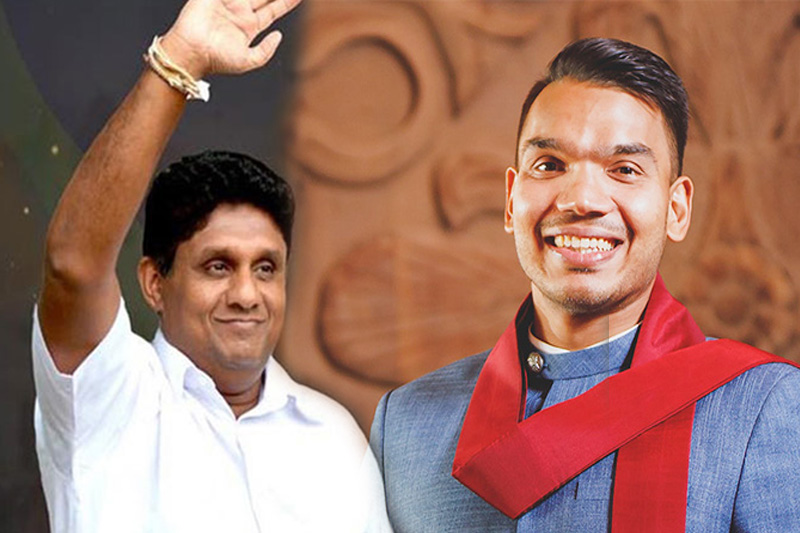
Wickremesinghe’s campaign has also faced challenges, notably the absence of a strong media spokesperson to address inquiries. Despite this, he is expected to draw support from his own United National Party (UNP) base and from SLPP members who are backing his presidency.
The diversity of candidates underscores the fragmentation within Sri Lanka’s political system. This multiplicity of voices, while highlighting the democratic vibrancy, also presents challenges in achieving consensus and formulating cohesive policies.
Voters are now more crucial than ever, as they navigate a complex field of candidates with varying promises and visions for the nation’s future.
The 2024 election is pivotal not just for selecting a new leader, but for determining the direction Sri Lanka will take in the coming years.
Economic stability, national security, and social welfare are central issues in this election, with each candidate proposing different strategies to address these critical areas. Economic recovery is particularly urgent, as the country continues to grapple with the aftermath of previous crises, including the much-debated IMF deal. The electorate seeks a leader capable of not only stabilizing the economy but also implementing sustainable, long-term growth policies.
On the social front, there is growing demand for policies that address inequality, improve education, and enhance healthcare. The electorate is increasingly aware of the necessity for a clear and actionable plan from the next President to tackle these pressing issues, which are vital to the nation's overall well-being.
The significant number of independent candidates in this election has introduced an element of unpredictability, with some analysts predicting that no single candidate may secure 50 percent of the vote.
While some voters remain loyal to traditional party lines, others are exploring alternatives to the status quo. However, the success of these alternatives in the complex political landscape of Sri Lanka remains uncertain.
As the election date nears, the Election Commission faces the challenge of ensuring a fair and transparent electoral process.
Managing the logistics of such a large-scale election, with numerous candidates, will require meticulous attention to ensure equal access for all candidates and a voting process free from manipulation or intimidation.
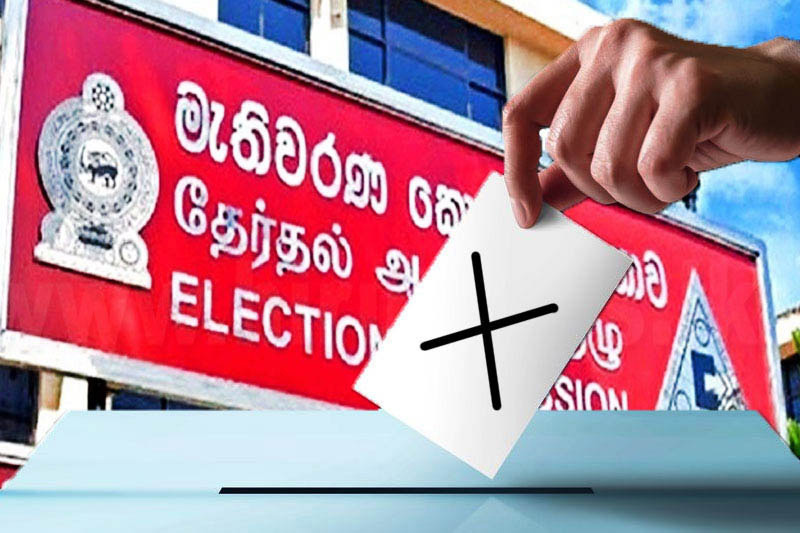
The role of the media will be crucial in this election. With many candidates competing for attention, the media must provide balanced coverage to help voters make informed decisions.
However, there is also the risk of misinformation and polarization, which could undermine the integrity of the election.
This election is a potential turning point in Sri Lanka’s political history, with outcomes that could shape the nation’s future, influencing everything from economic policies to international relations. As voters prepare to cast their ballots, they must consider not just the candidates' promises but also their ability to fulfill them.
The election is a moment for Sri Lankans to choose a leader who can navigate the challenges ahead and guide the country toward a brighter, more prosperous future. The ultimate test of this election will be not only in who wins but also in how effectively the democratic process serves the people.
It is a measure of the nation’s commitment to democratic values and the electorate’s ability to make wise choices in a time of uncertainty.
Recent government decisions, such as the Cabinet’s move to raise public sector salaries, could influence voting patterns, particularly among government employees.
This salary increase, set to take effect after the election, has been criticized by independent observers as a tactic to sway votes.
The plantation sector, in particular, has become a focal point, with both Wickremesinghe and Premadasa making strategic moves to win over this crucial voter base.
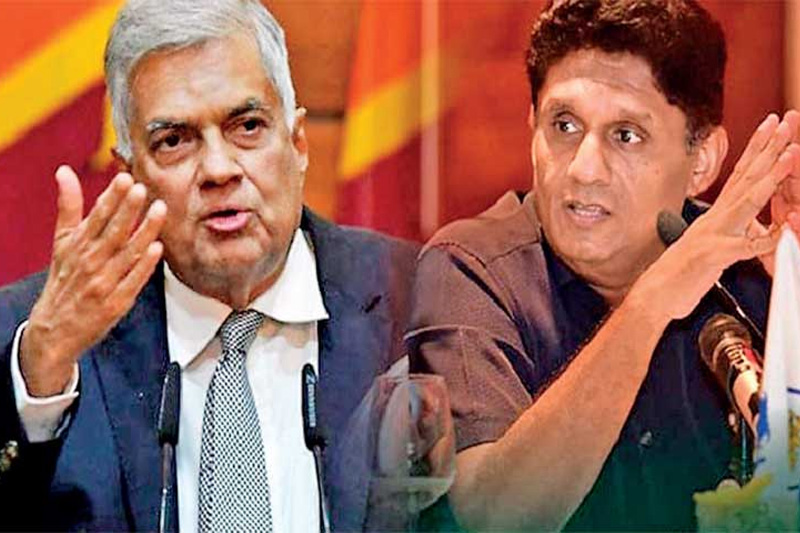
The situation is further complicated by the diverse political dynamics among Sri Lanka’s minority communities.
The Tamil and Muslim populations, in particular, face internal divisions and shifting allegiances, adding further complexity to the electoral landscape. In the north and east,
Tamil leaders are divided, with some advocating for a boycott of the election to signal dissatisfaction with southern political leadership, while others support a common Tamil candidate or consider backing a southern candidate who endorses power devolution.
In conclusion, the 2024 Presidential Election in Sri Lanka is a critical juncture, with significant implications for the nation’s future. The electorate's decision will determine not only the next leader but also the country's path forward in addressing economic, social, and political challenges.


